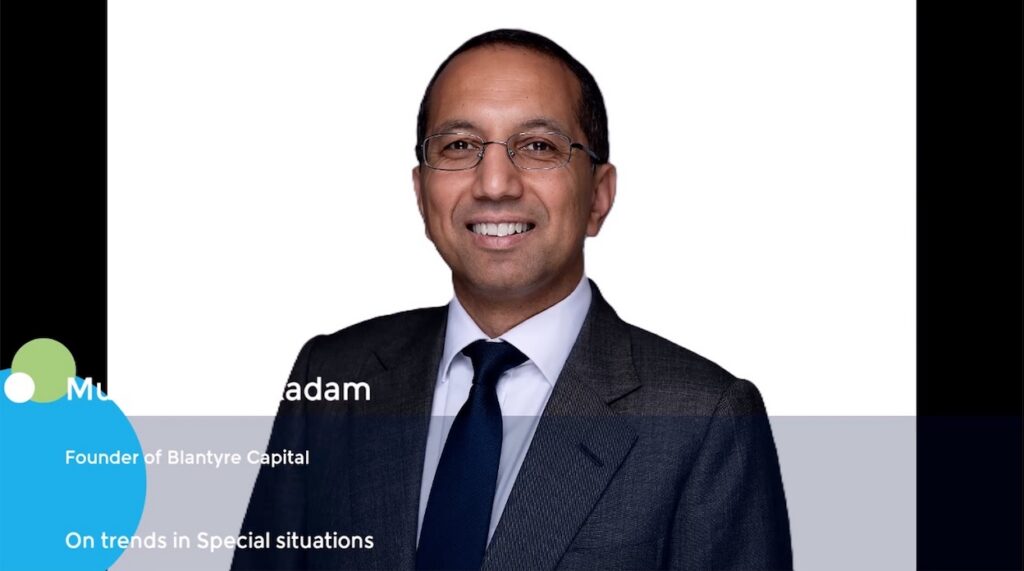COURT: Cineworld secures convening order for English restructuring plan
Cineworld today (28 August) received an English High Court judge’s green light to convene its creditors to meetings in which they will vote on restructuring plans proposed by four group entities aimed at securing new financing while trimming its rental bill.
In a hearing held in the Rolls Building earlier today, Mr Justice Edwin Johnson accepted to grant the convening order sought by the global cinema group after being told by counsel that, absent the plans, the business will be unable to meet its outstanding obligations including quarterly rental, service charge and insurance payments of GBP 19.1m due in late September 2024.
The US part of the Cineworld group, which has in recent times saved the UK business from becoming cashflow insolvent, has made it clear that it would not continue to provide funding if the proposed plans are not implemented.
While the convening application was unopposed, landlord creditor GLA Ireland No.1 Sarl, via its legal advisors Addleshaw Goddard, has voiced grievances arguing in written correspondence that the proposed plans are unable to release its claims against the company arising under an Irish law-governed lease agreement.
Noting the points raised by the potentially dissenting landlord creditor, Edwin Johnson J found that even if valid, they didn’t constitute “a roadblock” to the granting of the convening order, and were capable of being addressed, if needed, at the sanction stage.
For the purpose of voting on the plans, the relevant creditors will be divided into 15 separate classes, of which 11 will be populated by landlord creditors or those providing guarantees over the lease contracts.
The judge called the proposed class composition formula “a sensible way forward”, adding that in his view there was no need to add to the classes or to “amalgamate” any of the proposed classes.
To see a comparative table of the estimated outcomes for various classes of creditors under the plan, please see paragraph 45 of the company’s skeleton argument.
The plan meetings are scheduled for 18 September, with the sanction hearing pencilled in for 26 September.
In today’s hearing, Cineworld was represented by South Square’s Tom Smith KC and Henry Phillips. Their colleague Annabelle Wang, who was closely involved in the preparation of the company’s skeleton argument, was not present at the hearing. The barristers were instructed by Kirkland & Ellis.
Structure and financial debt stack
Cineworld was severely impacted by the Covid-19 pandemic and government restrictions, which resulted in the group undertaking a reorganisation under Chapter 11 of the US Bankruptcy Code in 2023. Whilst the Chapter 11 plan provided much needed liquidity and headroom in relation to the group’s financial indebtedness, it did not address the UK group’s lease liabilities in respect of its cinema sites, the company’s lawyers pointed out today.
They posited in their skeleton argument that a significant number of the UK leases are “over-rented”, which, alongside difficult trading conditions arising from the screen actors’ and writers’ strikes in 2023, have resulted in the UK group continuing to suffer severe financial difficulties.
The plans have been proposed by Cine-UK Limited (CUKL), Cineworld Cinemas Limited (CWCL), Cineworld Cinema Properties Limited (CCPL) and Cineworld Estates Limited (CWEL).
The ultimate parent company of the group is Cineworld Parent Limited, a private limited company incorporated in the Cayman Islands. The plan companies are each operational companies incorporated in England and Wales and are the primary tenant entities within the Cineworld group.
The group operates 1,082 screens in 101 theatres in the United Kingdom under the Cineworld brand and employs 4,400 people, who are employed by CWCL, the group’s main operating company.
Each of the plan companies are tenants in respect of leases within the UK group’s portfolio. Cineworld also operates a substantial number of cinemas in the United States under the Regal Cinemas brand.
The plan companies are guarantors of the group’s principal financing arrangements following emergence from the Chapter 11 process in 2023.
The financial debt subject to the English plan includes a USD 250m revolving credit facility, the principal borrowers of which are Crown UK Holdco Limited and Crown Finance US Inc. The RCF is secured by an all-assets debenture between, among others, Crown UK Holdco Limited as chargor and Celebrity Commercial Funding (Cayman) L.P. as collateral agent.
While the RCF lenders would not be expected to make any recovery in an administration by enforcement of their security in respect of the UK group, they would likely make full recoveries by virtue of their security over the assets of the wider group. The RCF will therefore not be compromised under the plans. b.
A New York law-governed USD 1.62bn term loan, the principal borrower of which is Crown UK Holdco Limited, is the largest chunk of the plan companies’ debt.
The plan companies have also become primary obligors in respect of the term loan pursuant to a deed of contribution entered into on 26 July 2024.
The plans
In broad terms, the plans have five basic features:
(i) compromising and releasing the plan companies’ secured loan obligations to the American part of Cineworld’s business – which in recent times has been helping the UK leg of the company to stay afloat. In exchange, the US business receives warrants for shares in the plan companies. The plans also provide for the release of the plan companies’ unsecured intercompany liabilities.
(ii) recapitalising the UK business through GBP 16m of new equity funding from the indirect parent company to fund immediate liquidity needs, with a further funding of up to GBP 35m available to fund capital expenditure.
(iii) amending and extending time for payment of obligations owed to the plan companies’ secondary secured lenders.
(iv) restructuring their portfolio of leases by trimming payable rent on some premises while allowing the group to exit other leases which are deemed unviable.
(v) compromising and releasing the plan companies’ unsecured property and business rates liabilities.
The Chapter 11 plan provided Cineworld with necessary liquidity and headroom in relation to its financial liabilities by reducing its funded debt by circa USD 4.53bn and raising around USD 800m of new equity and debt financing in the form of the RCF and the term loan.
The equity ownership of the group was also transferred to the senior lenders of the pre-Chapter 11 structure. The shareholders of the Parent include entities managed or controlled by various investment funds which are also financial creditors of the group.
Term loan lenders hold over 70% of the issued share capital of the Parent spread across 24 institutions, with four institutions holding over 5% issued share capital, and no institutions holding over 10%.
However, the UK business has continued to suffer due to difficult trading conditions, including the screen writers and actors’ strikes in 2023, and its substantially “over-rented” lease portfolio, which was not addressed by the Chapter 11 Plan, Smith KC pointed out in his skeleton argument.
Whilst the UK business was profitable in FY19, it has generated negative EBITDA from 2020 onwards, most recently of negative GBP 8m in FY22 and negative GBP 10m in FY23, he added, noting that the UK business also continues to be reliant on the US group for liquidity.
Following emergence from the Chapter 11 in July 2023, the UK business was unable to meet its obligations in the period to 30 June 2024 without further external funding, prompting the US group to provide around USD 65m by way of unsecured funding to enable the UK business to pay, among other things, its Covid-19 related rent arrears and professional fees, and capital expenditure payments.
In April 2024, the UK business engaged commercial property advisors CBRE to conduct analysis of its lease portfolio. CBRE has identified that 75 out of 105 of the UK group’s sites as “over-rented”. A key purpose of the plans is to reduce the rent at certain of these sites in order to return the UK Group to profitability.
Under the plans, indirect parent Crown UK Holdco Limited will commit to provide GBP 16m of new equity funding by 29 September 2024 in order to fund the immediate liquidity needs, and up to GBP 35m of additional monies for capital expenditure purposes.
The company’s advisors believe that the costs savings generated through the plans, alongside the new equity fundings will be sufficient to enable the UK group to continue operating as a going concern. Management forecasts that the turnaround plan may improve the EBITDA performance of the UK group by GBP 20m (forecast EBITDA to be GBP 11m), GBP 21m (forecast EBITDA to be GBP 18m) and GBP 22m (forecast EBITDA to be GBP 23m) in FY25, FY26 and FY27, respectively.
Under the plans, the circa USD 65m secured liabilities under the New Intercompany Loan will be released in full in exchange for warrants for shares in the plan companies, which will entitle the Intercompany Lender to subscribe for shares in each plan company in the year following the restructuring’s implementation.
The Other Intercompany Loans will be released in full in exchange for payment of the higher of 150% of the ‘Estimated Insolvency Return’ (the amount the relevant creditors are expected to make under an administration) or GBP 1,000 in respect of those liabilities. However, the Intercompany Lender has agreed to waive this entitlement, Smith KC noted in his skeleton argument.
The term loan will be amended to extend its PIK election feature by six months to 31 July 2025, and extend the maturity of the term loan itself by six months to 31 January 2029.
In return for the term loan lenders will see the existing call protection extended for a period of four months. The call protection ensures that if there is prepayment, early repayment or an acceleration of the term loan, the lenders will receive an amount equal to the interest payments which would otherwise have been due in respect of the prepaid, repaid or accelerated loan until the end of the call protection period.
As for the leases, they are all unsecured claims and almost all are governed by English law (except for eight which are governed by Scots law and one governed by Irish law).
The leases are divided into categories A to D, some of which are further divided into sub-categories.
Class A leases are those relating to 38 commercially viable sites on current lease terms. The Class A leases are not included in the plans as no amendments are necessary.
There are 33 Class B leases. These are uneconomic on current terms and are over-rented but would be rendered viable by bringing the rent in line with market rates.
As to Class C leases, they are uneconomic on current terms and require an even more substantial rent reduction in order to place the sites on a viable footing. The Class C leases are sub-divided into two classes comprising 10 Class C1 leases, which will have rent amended to turnover rent, and six Class C2 leases which will have rent amended to nil.
Finally, the Class D leases are those which are commercially unviable. Under the plans, the company will be released from all liabilities under these leases. The Class D leases are sub-divided into three classes comprising six Class D1 leases, which will be exited under the plans; three Class D2 leases, which relate to non-trading, vacant sites in respect of which the plan companies will be released from all liabilities under the plans; and two Class D3 leases, which relate to sites which CUKL has sub-let to sub-tenants, in respect of which CUKL will be released from all liabilities under the CUKL plan.










